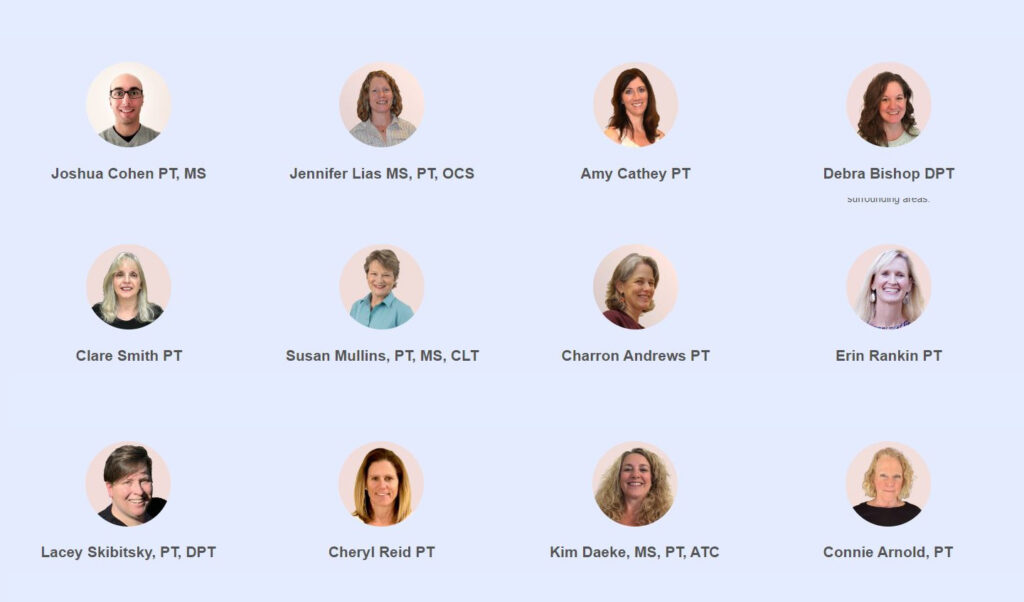We Accept:
Mobile Rehab provides in-home, outpatient Physical Therapy for seniors.
Convenient
Personalized
Covered by insurance
Locally owned and operated in North Carolina since 2004
What is a rotator cuff repair?
A rotator cuff repair is a surgical procedure that is performed to repair a tear in the rotator cuff, which is a group of muscles and tendons that surround the shoulder joint and help to keep it stable.
The rotator cuff can be injured due to repetitive overhead motions, trauma, or age-related degeneration, and a tear in the rotator cuff can cause pain, weakness, and limited mobility in the shoulder.
During a rotator cuff repair, the surgeon makes a small incision in the shoulder and uses arthroscopic techniques to view the tear and reattach the torn tendon to the bone. This can be done using sutures, anchors, or other devices to hold the tendon in place as it heals.
After the surgery, the patient may need to wear a sling for several weeks to allow the shoulder to heal, and a rehabilitation program may be prescribed to help improve strength, flexibility, and range of motion in the shoulder. The length of the recovery period can vary depending on the extent of the tear, the patient's age and overall health, and other factors.
Rotator cuff repair surgery can be highly effective in relieving pain and restoring function in the shoulder, and is often recommended when other treatments, such as physical therapy, medications, or corticosteroid injections, have not provided enough relief.
How can physical therapy help after a rotator cuff repair?
Physical therapy is an important part of the rehabilitation process after a rotator cuff repair surgery. Here are some ways that physical therapy can help:
Pain management: Physical therapists can provide techniques to manage pain and swelling, including ice therapy, compression, and elevation.
Range of motion exercises: Physical therapy can help to improve the range of motion in the shoulder joint, which can be limited after surgery.
Strengthening exercises: Physical therapy can help to strengthen the muscles around the shoulder joint, which can help to improve stability and prevent further injury.
Gait training: Physical therapy can help patients to learn how to move properly with their repaired shoulder and prevent compensatory movements that can lead to further injury.
Education: Physical therapists can provide patients with information about what to expect during the recovery process, as well as tips for managing pain and swelling.
Home exercise program: Physical therapists can provide patients with exercises to perform at home, which can help to improve their recovery and prevent future shoulder problems.
It's important to note that the specific type and intensity of physical therapy prescribed will depend on the extent of the rotator cuff injury, the type of surgical repair, and other individual factors. The physical therapist will work closely with the patient's surgeon to develop a personalized rehabilitation plan that is safe and effective.
Frequently asked questions
Use your insurance or pay privately
Medicare
$0 per visit
Many Medicare plans with a supplement policy will cover all of our fees.
Commercial Insurance
Same as a clinic
Pay the same copay as if you went to a clinic for therapy. We accept many major insurances and will verify your benefits before starting.
Private Pay
$120
Easy payment options available.
HOW TO GET STARTED
Contact Us by Phone, Email, or Fax
We’ll help you check your insurance benefits. You do not need to be homebound and you should not be currently receiving any other physical therapy or skilled nursing services in the home.
Schedule an Evaluation
We will match you with a therapist and have them contact you to plan a date, time and location that works best for you.
It’s That Easy!
We make it simple to get the care you need… and exceed your expectations while doing so.
SERVICES
Fall Prevention
We provide research-based, individualized fall prevention interventions that have been shown to greatly reduce your risk of falling and injuries, including the OTAGO fall prevention program.
Click here to
learn more about OTAGO
General Rehab
Avoid driving to a clinic and get the individualized care you deserve. We work with many conditions ranging from post-stroke, Parkinson’s, vertigo to rotator cuff dysfunction and much more. Contact us for details.
After Home Health
We can improve care continuity by providing in home therapy even after you have been discharged by a Home Health agency. Avoid the hassle of driving and continue to make progress towards your goals.
Strength and Conditioning
We can help you improve your strength, mobility, range of motion, or any other functional limitations that impair your daily activity.
Pain Relief
We develop individualized care plans to help manage your aches and pains through exercise and hands-on techniques.


